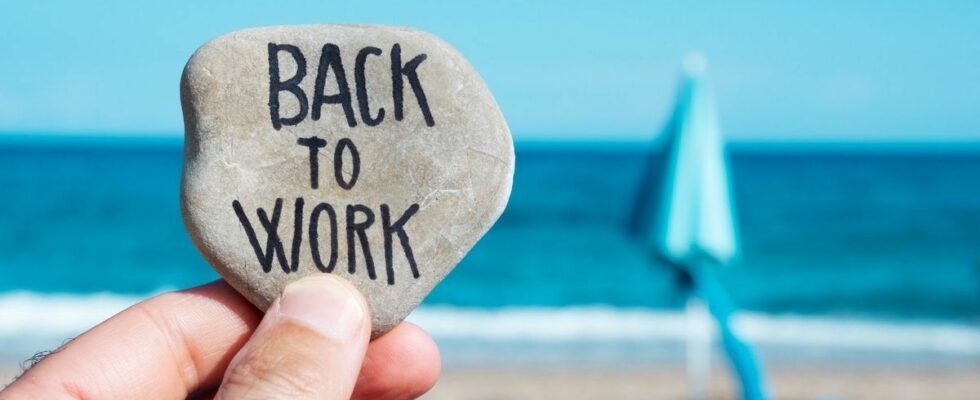Published on
updated on
Reading 3 min.
Coming back from vacation can be very difficult for some people. In very intense cases, we are talking about post-vacation blues. This major depression presents some signs that a psychoanalyst shares with you.
A much-awaited moment throughout the year, vacations allow you to recharge your batteries, spend time with your loved ones, and do things you love. The only problem? They often end too quickly, and here you are back at the office already nostalgic for the good times you had. This phenomenon has a name: the post-vacation blues. It affects nearly 80% of individuals who develop anxiety after their vacation. Psychoanalyst Christian Richomme shares with you the symptoms that should alert you, as well as how to overcome this post-summer vacation depression.
Although it is common, this phenomenon that occurs after the holidays should not be taken lightly. Fortunately, by understanding the reasons that make us sad, it is possible to adopt simple strategies, overcome this period and even get something positive out of it.
The first step is to realize that you are suffering from this end-of-holiday blues. According to Christian Richomme, seven signs can alert you. Here they are: “intense fatigue, unexplained sadness, irritability, difficulty concentrating, sleep disturbances, loss of appetite, feeling of emptiness or disinterest”. Once you notice them, it is necessary to understand why they appear.
The reasons for these symptoms
This phenomenon does not occur by chance. Several factors cause this depression. First of all, the fact of returning to the daily routine that you were eager to leave before leaving. You find your obligations, more rigid schedules, less time for yourself… In short, the rhythm is no longer the same and added to the stress that returns, it can be oppressive. The weather also plays on your mood. In general, we choose a sunny destination for our holidays, but the weather is not necessarily the same where we live, and this can quickly depress us. Thinking back to the good summer memories fresh in your mind can also make your daily life more bland and create frustration. It’s like the impression that the ordinary of your life cannot compete with what you experienced on vacation. Nostalgia then sets in.
From a neuroscientific point of view, this is all linked to a sudden drop in dopamine, the happy hormone. During the holidays, it is very present in our brain but decreases once we return to our daily lives. This drop in hormones causes a feeling of emptiness and the transition can then be difficult to live through.
But that’s not all! The influence of social networks also plays a major role in this depression. For example, they remind you that your friends haven’t finished their vacation and that your favorite influencers have gone to the other side of the world for the seventh time this year. The more perfect the moments you view seem, the more monotonous your daily life seems and makes you question everything.
To avoid sinking into post-holiday depression, the specialist advises you to adopt a few habits:
- Resume gradually, avoiding a sudden shock. For example, take a few days off between your return from vacation and returning to work (if possible). Slowly get back into your habits.
- Continue to allow yourself some moments of relaxation, particularly activities that you enjoy doing during your vacation (reading, sports, cooking, etc.).
- Take advantage of the fact that not everyone has returned to work to plan time with your loved ones. This way, the return to work will be smoother and you will have a good time.
- Back to school means new goals! Take stock of yourself and set new things to accomplish. This will stimulate you and you might even be happy to start again!
- Take time for yourself and meditate to reduce stress. You can write your thoughts in a journal to help you get it out.
- Finally, if the post-holiday blues become too intense, therapy is necessary. Thanks to this coaching you will learn to manage your emotions in order to better anticipate these difficult periods.

